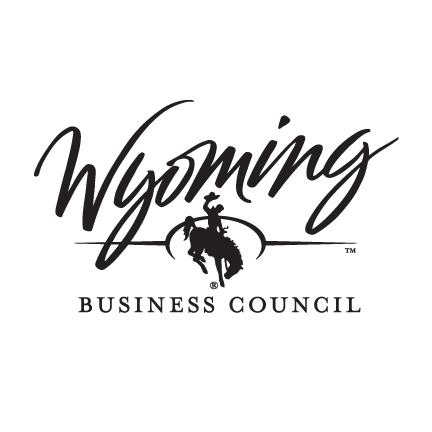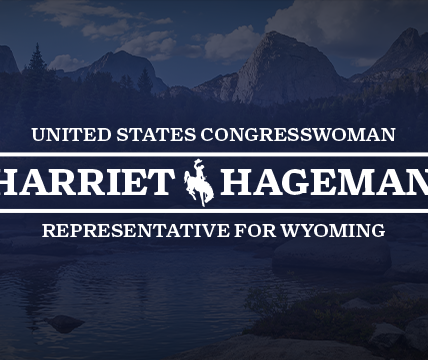By Nick Reynolds
Casper Star-Tribune
Via- Wyoming News Exchange
CASPER — To operate effectively, Wyoming’s economy – like the rest of the country – depends mightily on foreign trade.
According to statistics from the Office of the United States Trade Representative, Wyoming exported approximately $1.4 billion in goods around the world last year, helping to support more than 5,000 jobs across the state. And that number projects upward: Wyoming international trade grew 19.4 percent in the first half of the decade according to the Wyoming Business Council and, entering a new decade in 2020, exports are only anticipated to grow as trade agreements with countries like Taiwan at the state level – and countries like Japan at the national level – come to fruition.
Though it might be Asia – and its demand for local commodities like beef, rare earth minerals and fossil fuels – that gets all the attention and the headlines here in the Equality State, it’s actually America’s neighbors to the north and south that buy and sell most of the goods most critical to Wyoming’s economy.
After nearly 30 years of doing business under the North American Free Trade Agreement – or NAFTA – the three countries are on the cusp of signing a new trade agreement called the United States-Mexico-Canada Agreement, or the USMCA.
The terms of that agreement – and the opportunities available for Wyoming to capitalize on it– were at the center of a Tuesday luncheon put on by the Wyoming Business Alliance in Casper.
Headlined by representatives from both the Canadian and Mexican consulates, as well as a panel of experts in agricultural and natural resource economics, the panel helped to highlight just how essential NAFTA has been to the prosperity of everyone involved, as well as pointing out a number of the opportunities that could present themselves under the updated terms of the USMCA.
“It’s helpful to realize Canada is not often in the news, to the point you may think some other country is America’s number one trading partner,” Stephane Lessard, Consul General for the Canadian Consulate in Denver, said in an interview prior to the lunch. “But Canada is Wyoming’s number one customer – the most significant buyer of American goods and services of any country in the world.”
How all three countries got to that point is a story that began nearly four decades ago during the presidency of Ronald Reagan, whose administration first proposed the concept of developing a free trade zone between the U.S., Mexico and Canada.
And since President Bill Clinton signed the deal in 1993, the wealth of all three nations has grown exponentially. According to numbers provided to the Star-Tribune, Canada’s trade relationship with Wyoming netted the country $731 million in exports and $234 million in imports, directly supporting an estimated 3,600 jobs in the Equality State and hundreds more on the side. Though Mexican trade with the United States is much smaller, the two countries rely on each other for a number of critical goods, including energy and minerals to Mexico and raw materials and electronics to the United States.
It’s a relationship, Lessard said, that has been built up over many years, to the point where the economies of the two countries have become inseparably intertwined, dependent on each other for their continued prosperity.
In the wake of the administration of President Donald Trump, however, the relationship created decades ago by the North American Free Trade Agreement – or NAFTA – has been tested, as the administration has pushed for newer, more favorable terms in the accord. Canadians once eager to invest in the United States, Lessard said, were turned off by the regulatory uncertainty, holding off from spending money over the border until the ink on a new deal was dry.
Though only Mexico has so far ratified the agreement – with an election upcoming in Canada and a divided Congress in the United States holding up progress – Lessard said he was confident a deal would eventually be struck.
“The relationship between us is profound, it’s historic, and it’s not dependent on what the headline of the day is,” said Lessard. “We helped build this together.”
With any new agreement comes an explosion of possibilities. When Mexico entered into NAFTA 26 years ago, said Consul General Berenice Rendón-Talavera, the Mexican economy was opened to the world for the first time in its history. This, she said, stoked an era of unprecedented prosperity spurred through fair competition standards, fewer barriers and increased cooperation, and a change in supply chains that led to lowered prices and the ability to, for the first time, manufacture goods, create services and generate energy in ways that had never before been possible.
Under a new agreement for the future, similar changes might be seen in Wyoming’s economy. Lessard said that in his role, he and his office are always seeking transactional opportunities between his country and Wyoming, consistently monitoring state legislatures and regulatory activity to see what opportunities exist for his country to sink a greater investment into the United States, helping to increase their prosperity back home.
For Wyoming, similar opportunities exist to capitalize off of the needs of Canadian financial institutions through its pioneering work with blockchain technology, he said, or through innovations in agricultural tech – an area the University of Wyoming’s College of Agriculture and Natural Resources Dean Barbara Rasco said could present a number of opportunities for Wyoming’s business community.
However, trade agreements can also have losers – as was seen in the slow collapse of industry in the northeastern United States and in the farm fields of Mexico following the passage of NAFTA a quarter century ago.
Though it’s too early to know where the impacts will be felt most, Lessard said it’s important to be prepared, highlighting work the Canadian government is doing to help coal mining communities in their country transition to a new economy.
“You can’t stop progress,” he said. “But you have to be mindful of the impacts and mitigate them.”






